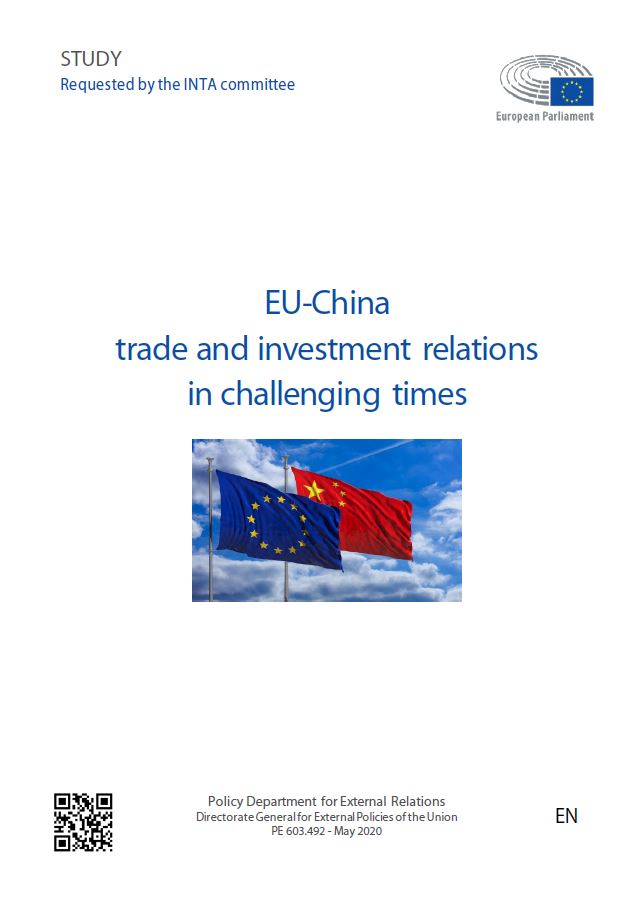BY: ALICIA GARCÍA-HERRERO, GUNTRAM B. WOLFF, JIANWEI XU, NICLAS POITIERS, GABRIEL FELBERMAYR, ROLF J. LANGHAMMER, WAN-HSIN LIU AND ALEXANDER SANDKAMP
This study was prepared for the European Parliament’s Committee on International Trade (INTA). The study is available on the European Parliament’s online database, ‘ThinkTank‘. Copyright remains with the European Parliament at all times.
This report examines key aspects of the European Union-China economic relationship, including trade, investment and China’s key strategic project overseas, the Belt and Road Initiative (BRI). We conclude that China is, and will continue to be, a major trade and investment partner for EU countries. In this context, it seems clear that regardless of the direction of the United States-China relationship, the EU needs to explore options for fruitful co-existence with China.
Trade continues to be the least problematic aspect of the EU-China economic relationship, although challenges need to be dealt with in a number of areas. There is hardly any EU-China trade in services, and the value added of Chinese exports and competition on third markets is increasing. As for investment, although EU companies have built up more foreign direct investment in China than the other way around, Chinese investment in Europe is growing and has focused strongly on technology. This raises the question of whether the EU should fear losing its technological edge, especially when Chinese state-owned companies might distort competition, not only in China, but also overseas through acquisitions.
Finally, we review the significance of the BRI from the European perspective. The BRI offers potential trade gains for Europe by improving physical connectivity with countries along the route to China, but it also poses challenges for the EU. The main challenge is China’s increasing soft power, which is being felt in the EU’s neighbourhood and even in a growing number of EU countries. A more united approach to managing the EU-China economic relationship is required to improve the bargaining power of EU countries when dealing with China.

No comments:
Post a Comment